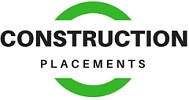Last Updated on October 9, 2024 by Admin
Securing a job in the competitive civil engineering sector often begins with performing well in campus interviews. For fresh graduates, this can be both exciting and nerve-wracking. The good news is that campus interviewers tend to focus on a mix of technical knowledge, problem-solving skills, and interpersonal qualities. To help you prepare, we’ve compiled 25 frequently asked civil engineering interview questions you will likely encounter. This post will provide insights on answering these questions effectively, giving you an edge over the competition.
Table of Contents
Technical Civil Engineering Interview Questions
1. What is the significance of the modulus of elasticity in civil engineering?
Modulus of elasticity, also known as Young’s modulus, measures a material’s stiffness. In civil engineering, it is crucial as it helps determine how a material deforms under stress. For instance, a higher modulus means the material is stiffer, which is an important factor in designing bridges and buildings.
2. What is a cantilever beam?
A cantilever beam is supported at only one end. It can bear loads without external bracing and is commonly used in structures like balconies, bridges, and some buildings.
3. Define the bearing capacity of the soil.
Bearing capacity is the maximum load per unit area the ground can support without experiencing shear failure or excessive settlement. Proper evaluation of soil-bearing capacity is vital for designing building foundations.
4. What is the difference between a one-way slab and a two-way slab?
A one-way slab transfers load in one direction (typically supported by two opposite beams), whereas a two-way slab distributes load in two directions (usually supported by beams on all four sides). Two-way slabs are generally thinner and more economical for large areas.
5. Explain the purpose of reinforcement in concrete structures.
Concrete is strong in compression but weak in tension. Reinforcement, typically steel bars, is embedded within concrete to improve its tensile strength, preventing cracks and enhancing the structural integrity of buildings and other structures.
6. What is the use of the Finite Element Method (FEM) in civil engineering?
The Finite Element Method (FEM) is a computational tool used to simulate how materials and structures behave under various conditions. It breaks down large, complex structures into smaller, manageable parts (finite elements) to analyze stress, strain, and displacement.
7. What is the role of surveying in civil engineering projects?
Surveying is essential for accurately determining the relative positions of points on the Earth’s surface. It is used in planning and executing projects like roads, railways, dams, and buildings, ensuring that the construction is done according to specifications.
8. What is pre-stressed concrete, and why is it used?
Pre-stressed concrete is a form of concrete in which internal stresses are introduced before external loads are applied. This allows the concrete to resist tension better and makes it more durable, particularly useful in long-span bridges and high-rise buildings.
9. What are the different types of foundations?
The most common types of foundations are:
- Shallow Foundations: Spread footing, raft foundation.
- Deep Foundations: Pile foundation, drilled shafts.
10. What is a moment of inertia, and how is it used in civil engineering?
Moment of inertia measures an object’s resistance to bending or torsion. In civil engineering, it helps design beams, columns, and other structural members by determining how much they will deflect under loads.
Recommended eBooks:
- A Comprehensive Civil Engineering Job Interview Guide with 300 Interview Questions and Answers PDF eBook.
- BIM Job Interview Preparation Guide + 210 Interview Questions and Answers PDF eBook
- Construction Project Coordinator Job Interview Guide + 200 Interview Q&A PDF eBook
- Interview Guide & 150 Construction Project Management Interview Questions & Answers eBook
Problem-Solving and Design Questions
11. How do you approach a structural failure?
When addressing structural failure, engineers should:
- Analyze the failure cause (material fatigue, design flaws, environmental factors).
- Review the structural load distribution.
- Consider possible solutions such as reinforcement, load redistribution, or retrofitting.
12. How would you design a water supply system for a small town?
This involves calculating the population’s water demand, designing a distribution network, selecting appropriate pipe materials, and ensuring sufficient water pressure. It also includes implementing a potable water treatment facility.
13. What factors influence the design of retaining walls?
Retaining wall design is influenced by factors like soil type, water drainage, the height of the wall, and the load it must resist. Proper drainage systems and materials are essential to prevent failure due to hydrostatic pressure.
14. What is the importance of load calculations in structural design?
Load calculations are crucial to ensure that a structure can withstand all types of loads (dead, live, wind, and seismic loads). Accurate load calculation helps design buildings, bridges, and other structures safely.
15. Explain the concept of shear force and bending moment.
Shear force refers to the internal force in a beam that resists sliding between parts of the beam. The bending moment is the internal moment that causes a beam to bend. Both are critical in beam design, as they influence where the structure may fail.
Related Courses:
- Top Construction Courses Online – 2024 Updated
- Top Construction Management Courses Online
- Top Real Estate Courses Online
- Top Real Estate Fundamentals Courses
- Free Real Estate Courses and Tutorials
- Construction Estimation Courses
Project Management and Site-Related Questions
16. How would you manage a construction project to avoid delays?
To avoid delays:
- Develop a detailed project schedule.
- Allocate resources efficiently.
- Communicate clearly with stakeholders.
- Anticipate and plan for potential risks and delays.
17. What is the purpose of quality control in construction?
Quality control ensures that the materials and workmanship on a construction project meet the specified standards and regulations. This is essential to avoid future structural issues and to meet safety requirements.
18. What are the primary steps involved in a site investigation?
A site investigation typically involves:
- Surface survey: Assessing topography and existing structures.
- Subsurface investigation: Drilling boreholes, testing soil samples, and determining groundwater conditions.
- Analysis: Interpreting data to recommend appropriate foundation types and design.
19. How do you ensure safety on a construction site?
Ensuring safety involves following safety regulations, providing personal protective equipment (PPE), conducting regular safety inspections, and ensuring workers are trained in hazard awareness.
20. How do you handle unexpected challenges during a project?
Handling unexpected challenges involves:
- Identifying the issue.
- Consulting with team members for possible solutions.
- Revising the project plan while minimizing delays or budget overruns.
Most Essential eBooks:
- Construction Jobs Interview: An Ultimate Interview Preparation Guide Ebook
- Construction Management Job Interview Guide + 200 Interview Q&A PDF eBook
- An Ultimate Guide to Launch Your Career in Digital Construction: Ebook
- BIM Job Interview Preparation Guide + 210 Interview Questions and Answers PDF eBook
Behavioral and HR Interview Questions
21. Tell us about a challenging project you worked on and how you handled it.
Here, focus on a specific project, the difficulties encountered (technical, budgetary, or time-related), and the steps you took to resolve the issue. Highlight teamwork, problem-solving, and leadership skills.
22. How do you prioritize tasks when working under pressure?
Discuss your ability to assess the urgency and importance of tasks, break larger tasks into smaller steps, and remain focused on deadlines without compromising quality.
23. Where do you see yourself as a civil engineer in the next five years?
Focus on your career aspirations, mentioning the desire to grow into leadership roles, enhance technical skills, or specialize in project management, structural design, or sustainability.
24. How do you handle criticism or feedback from superiors?
Explain that you view feedback as an opportunity to learn and grow. Provide an example of how constructive criticism helped you improve your performance or approach.
25. What makes you a good fit for our company?
Research the company in advance and align your skills and values with their mission and ongoing projects. Emphasize your commitment to contributing to their projects and growing with the company.
Final Tips for Campus Interviews
- Be Confident: Confidence is key, but balance it with humility.
- Research the Company: Tailor your answers to align with the company’s projects and values.
- Prepare Practically: For technical questions, brush up on core civil engineering concepts and problem-solving techniques.
- Practice Mock Interviews: Get comfortable with articulating your thoughts clearly and professionally.
- Stay Updated: Keep up with the latest industry trends, such as advancements in sustainable construction or smart city development.
Preparing for campus interviews in civil engineering is a crucial step toward launching a successful career. Understanding the technical questions, tackling problem-solving scenarios, and mastering behavioral interview questions will set you apart from other candidates. NPTEL Civil Engineering Courses offers a variety of video lectures from top Indian institutes to enhance your technical knowledge. By reviewing these 25 most frequently asked civil engineering questions, you will be better equipped to handle whatever the interviewer throws your way. Good luck!
Check out the practice tests section on our website to take multiple FREE tests and prepare yourself for the upcoming civil engineering interview.
Related Posts:
- Top 100 Construction Project Engineer Interview Questions and Answers
- Top 100 Interview Questions and Answers on Structural Analysis
- Top 100 Interview Questions and Answers on Strength of Materials: Your Ultimate Guide to Acing the Interview
- Top 100 Estimation Engineer Interview Questions & Answers


